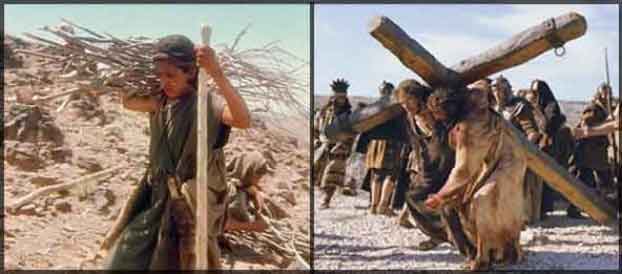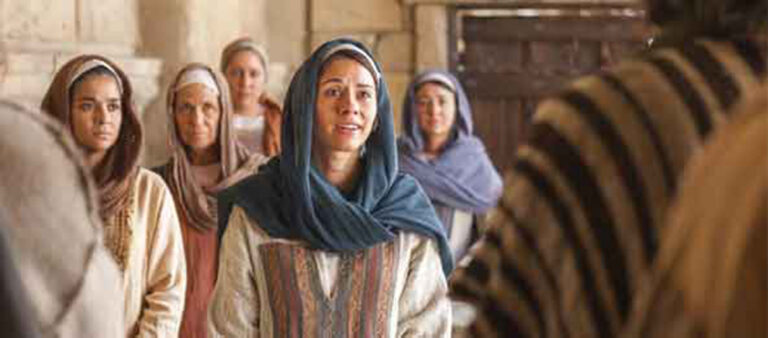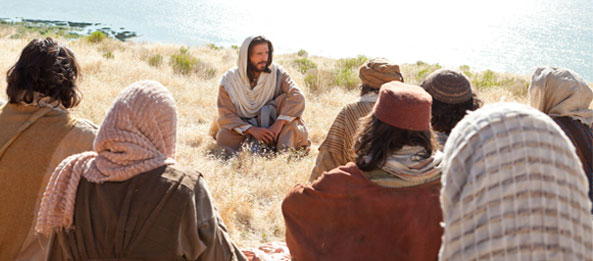The Sabbath Rest Today
“Today this scripture is fulfilled in your hearing” (Luke 4:21)
Hebrews 3:7-4:11
“You often ask about our church Josh, why not come with this Sunday?” George inquired. “Yes, join us Josh!” said Eric. Josh smiled, “I can’t guys; I do the Sunday shift.” “Oh, that’s right,” mumbled George. Eric seemed lost in thought for a moment then looked up, “I tell you what Josh, I’ll do your shift this Sunday, and you go with George, how’s that?” George looked at Eric with shock, “Eric! You know what we believe. We don’t work on Sundays. It’s our Sabbath!” Eric’s stared back, “George! Which is right on the Sabbath: to help or to hinder, to give or withhold?”(Mark 3: 4) George remained silent. But Josh looked pleased, “Thanks Eric, I accept your offer… so Sundays your Sabbath is it? That’s odd. We Jews have ours on Saturdays; I wonder why it’s different?” George and Eric looked at each other blankly. “I haven’t a clue,” said George.
Hebrews 3:7-4.11 is about God’s Rest. It was written to Jewish believers who were used to observing the Sabbath and it gives us some insight into what the early church believed about it. The writer of Hebrews was trying to persuade these believers not to turn back to Judaism even though they were under pressure to do so. He tells them not to be like their forefathers who turned back when God had called them to enter the Promised Land. He continually refers to Psalm 95.7-11 which says, “Today, if you hear his voice do not harden your hearts as you did in the rebellion, during the time of testing in the desert, where your fathers tested and tried me…I declared on oath in my anger, ‘They shall never enter my rest.’”
In speaking of God’s Rest, the writer assumes that the rest found in the Promised Land and the rest experienced on the seventh day are the same thing (4.4). He sees both as sign posts pointing to a greater rest that neither Moses (who received the Sabbath law) nor Joshua (who entered the Promised Land) fully understood (4.8). This greater rest is the rest that is found in Christ.
The writer focuses on the word ‘Today.’ He says, “God again set a certain day, calling it Today…Today, if you hear his voice, do not harden your hearts” (4.7), “Encourage one another [to enter] daily as long as it is called Today” (3.13). His point is that God’s rest can be entered today and every day, that God’s rest is like a land or country that is continually available to anyone who believes. This concept will sound familiar to many Christians; we usually call this divine land the ‘Kingdom of God’. Anyone who enters God’s kingdom enters his rest; or his ‘Sabbath.’ So the New Testament Sabbath is not a sacred day, it is a sacred kingdom. We enter the kingdom and the kingdom enters us. It is God’s rule breaking in and bringing order to our lives and to all we minister to. This is what Jesus modelled. When Jesus healed and helped people on the Sabbath he was accused of working on a sacred day, just like our friend Eric above. But Jesus did these things on the Sabbath because he knew that the sacred day was just a sign post pointing to God’s sacred kingdom; a kingdom that brought salvation, healing, and wholeness to a lost world.
Another aspect of the Sabbath that points to God’s kingdom is the Year of Jubilee. In Israel every seventh year was considered a Sabbath Year when fields were left to ‘rest’ – they were not allowed to be cultivated. Every 49th year (7X7=49) was a Sabbath of Sabbath’s called the Year of Jubilee. At this time all Jews who had been sold into slavery were set free and all tribal lands were returned to their original owners. Many Israelites waited much of their lifetime for the Year of Jubilee, and so it was welcomed in with great rejoicing. If the Sabbath was a sign post pointing to God’s kingdom, the Year of Jubilee was a billboard that shouted it across the nation! Jesus said in Luke 4.16-21, “The Spirit of the Lord is on me, because he has anointed me to preach good news to the poor. He has sent me to proclaim freedom for the prisoners and recovery of sight for the blind, to release the oppressed, to proclaim the year of the Lord’s favour (the Year of Jubilee).” Here Jesus was announcing the fact that he was about to activate an everlasting Jubilee. The kingdom of God is this Jubilee; it is the Sabbath of Sabbaths. As we embrace God’s kingdom we are set free from spiritual slavery and debt, and are raised up to rule with Christ.
The word Sabbath originally comes from the Hebrew verb ‘sabat’ meaning to ‘cease’ or ‘rest’ from work. Genesis 2.2-3 says, “By the seventh day God had finished the work he had been doing; so on the seventh day he rested (sabat) from all his work. And God blessed the seventh day and made it holy, because on it he rested (sabat) from all the work of creating that he had done.” The concept of God resting seems strange to us today. Does God get tired? Did he rest on the eighth day too? The reason we sometimes ask these questions is because we lack the cultural context in which it was written. In ancient times people were always building temples for their gods. When they had completed the building, they ‘ceased’ their work and invited their god to ‘rest’ in it. When they invited their god to rest they brought the image of the god (the idol) to ‘rest’ there too. The idea was that the god would make itself at home in the temple and ruled from it. So on top of the idea of ceasing from building was the idea of resting in position. Rest did not imply relaxation, it implied occupation; it implied being enthroned as the ruler. Any ancient person reading the Genesis creation story would immediately recognize a six day process in which a temple was being built for Israel’s God. They would understand that there were six days of building followed by a seventh when Israel’s God came to rest in the temple. What would have been different and quite mind blowing for any ancient reader is the fact that the temple was ‘heaven and earth’ and that Israel’s God built it himself! This was the great claim of Israel; their God was the only true God and there was no place for any others. There were no sky gods, earth gods or moon gods. The universe belonged to the God of Abraham, Isaac, and Jacob; it was his temple! This is why the Sabbath was so important to God and the people of Israel; it was a massive declaration to all other nations. The number seven symbolised completion; the God of Israel ceased and rested when heaven and earth were set up and ready to function. It was a bit like an office being set up so that the director could take control. Something similar happened when Jesus breathed his last breath on the cross, he said, “It is finished,” which means it is over, the work is done, the kingdom of God can now begin to occupy the earth. The work of the cross ceased so that God’s rule and rest could begin.
The idea of God’s rule invading the earth adds another important aspect to God’s rest. Entering the Promised Land required action, it required a fight. Israel had to take on the enemy, the ‘giants’ in the land in order to enter. And this is what Jesus was doing as long as he was delivering and healing on the Sabbath. He was destroying the works of the enemy and cementing the order of God’s kingdom. So we see that God’s rest is not to be thought of as something passive, in the sense of a day off, it is about being active for the kingdom of God. When Jesus was criticized for healing on the Sabbath he said, “My Father is always at his work to this very day, and I too am working” (Jn 5,17).
Recognition that the Sabbath day was just a sign post or a shadow of Christ’s kingdom had an early place in Christian thinking. In Paul’s letter to the Colossians he said, “Do not let anyone judge you by what you eat or drink, or with regard to a religious festival, a New Moon celebration or a Sabbath day. These are a shadow of the things that were to come; the reality, however, is found in Christ” (Col 2.16-17). Evidently some Jewish believers had been pressurizing the Colossian Gentiles to start observing laws like Sabbath days and Paul was saying ‘no, you don’t have to, Sabbath days are just shadows of the God’s real rest that is found in Christ.’
As indicated by our opening conversation, there is often confusion as to why churches meet on the first day of the week (a Sunday) instead of the seventh day (a Saturday). Didn’t God rest on the seventh day? Wasn’t the seventh day the original Sabbath? Well yes, but the early church never considered a Sunday to be a Sabbath; they met on Sundays because that was the day Jesus rose from the dead. They called it the ‘Lord’s Day’ not the Sabbath (Rev 1.10). For them the Sabbath was fulfilled in Christ; the Rest of God was a sacred kingdom and not a sacred day. Some Jewish believers did continue to observe the Sabbath day for a while (Ro 14.5-6), it was a habit that was hard to break just as the issue of clean and unclean food was, and Paul allowed for the effect it might have on their consciences. But Paul did this a concession for those whose ‘faith is weak’ (Ro 14.1) and was greatly disappointed when he discovered that some of the Gentile believers were doing the same thing saying, “You are observing special days and months and seasons and years! I fear for you, that somehow I have wasted my efforts on you” (Gal 4.10).
So what does it mean to keep the Sabbath today? Well, it starts by us entering God’s kingdom and allowing God’s kingdom to enter us. This is the true Rest of God. We do this by faith. The writer said, “Today, if you hear his voice, do not harden your hearts.” This is not just about being ‘born again,’ it is that and more. It’s about acting for God’s kingdom in an ongoing way. Jesus is our example; we act for the kingdom like he did. This means ‘ceasing’ from doing things in our strength and ‘resting’ (occupying and ruling) in God’s strength. It means praying, “Your kingdom come, your will be done on earth as it is in heaven,” and then going out and acting on it. It means bringing salvation, deliverance and healing to all creation. It is a faith that is active, not a day that is passive.







